
Question and Answers Forum
Question Number 33531 by Yozzzzy last updated on 18/Apr/18
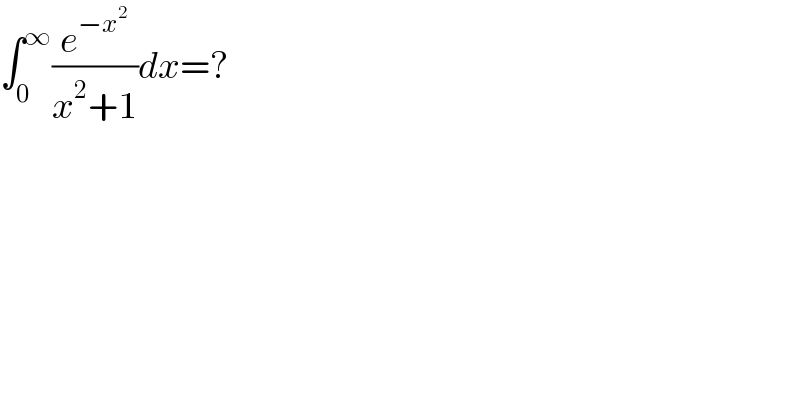
Commented by Rasheed.Sindhi last updated on 18/Apr/18

Commented by NECx last updated on 18/Apr/18

Commented by math khazana by abdo last updated on 18/Apr/18
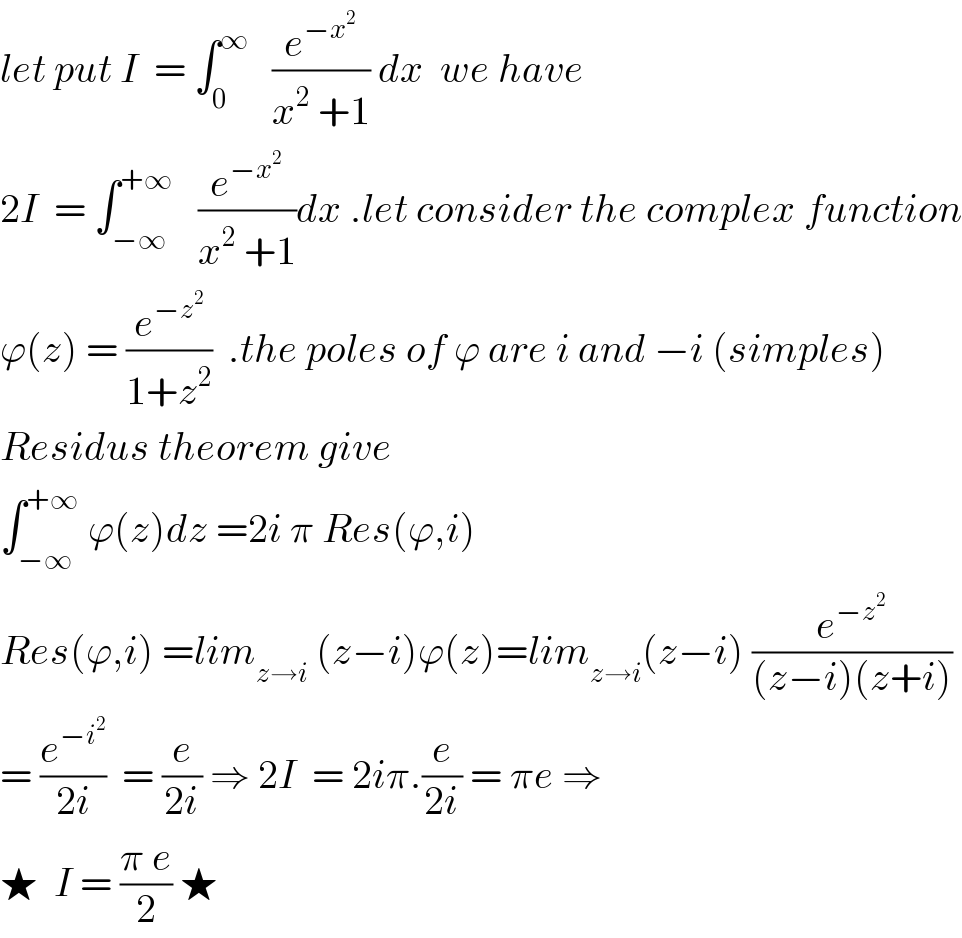
Commented by MJS last updated on 18/Apr/18
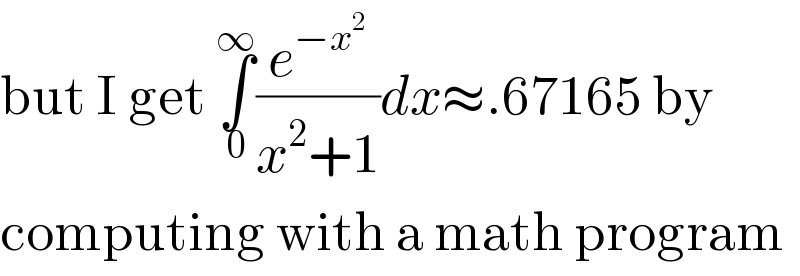
Commented by math khazana by abdo last updated on 19/Apr/18

Commented by MJS last updated on 19/Apr/18
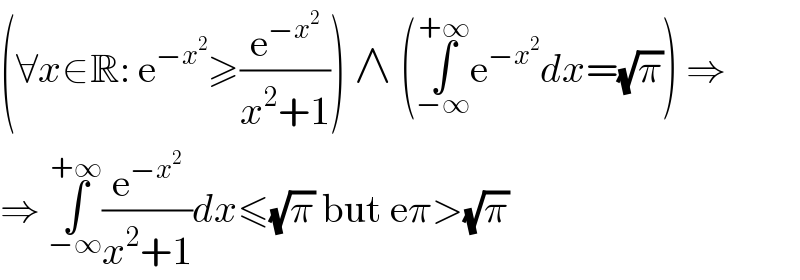
Commented by math khazana by abdo last updated on 19/Apr/18

Commented by MJS last updated on 19/Apr/18

Commented by math khazana by abdo last updated on 19/Apr/18

Commented by MJS last updated on 20/Apr/18
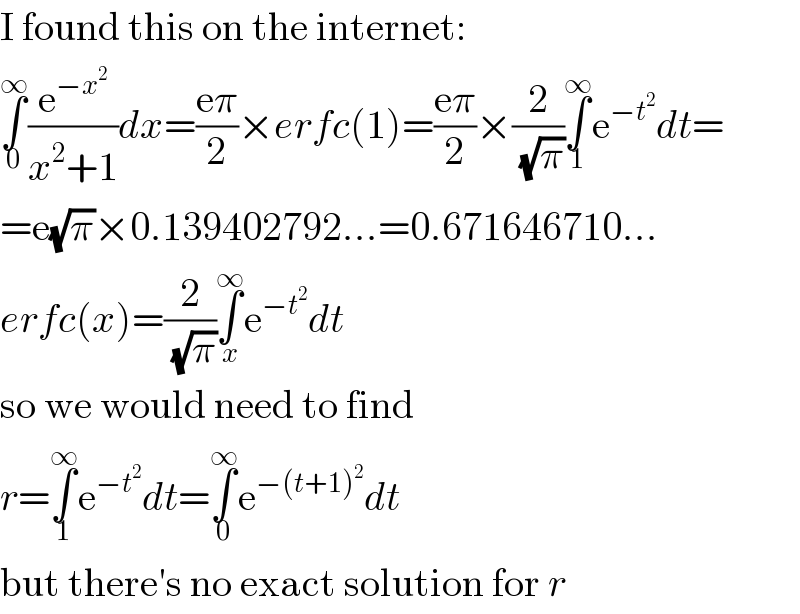
Commented by abdo imad last updated on 20/Apr/18

Commented by abdo imad last updated on 20/Apr/18
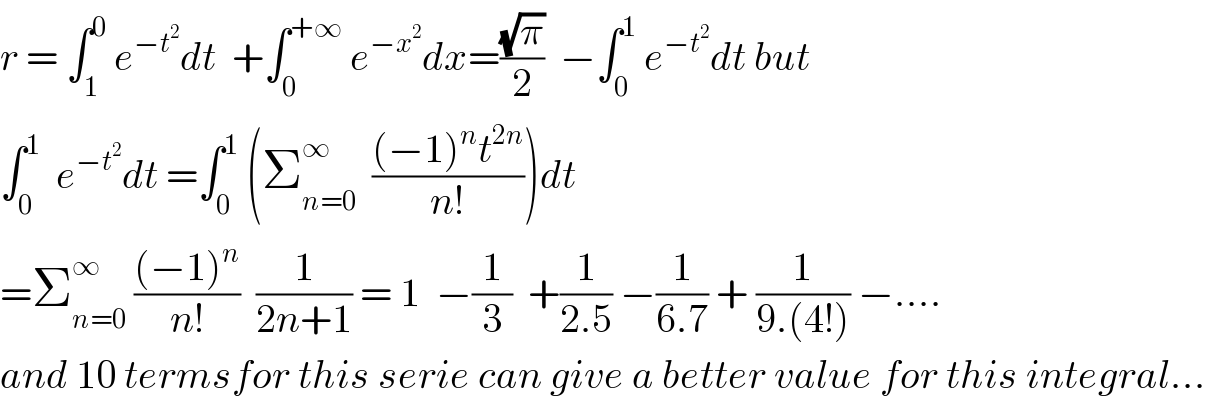
Commented by MJS last updated on 20/Apr/18

Commented by Yozzzzy last updated on 21/Apr/18
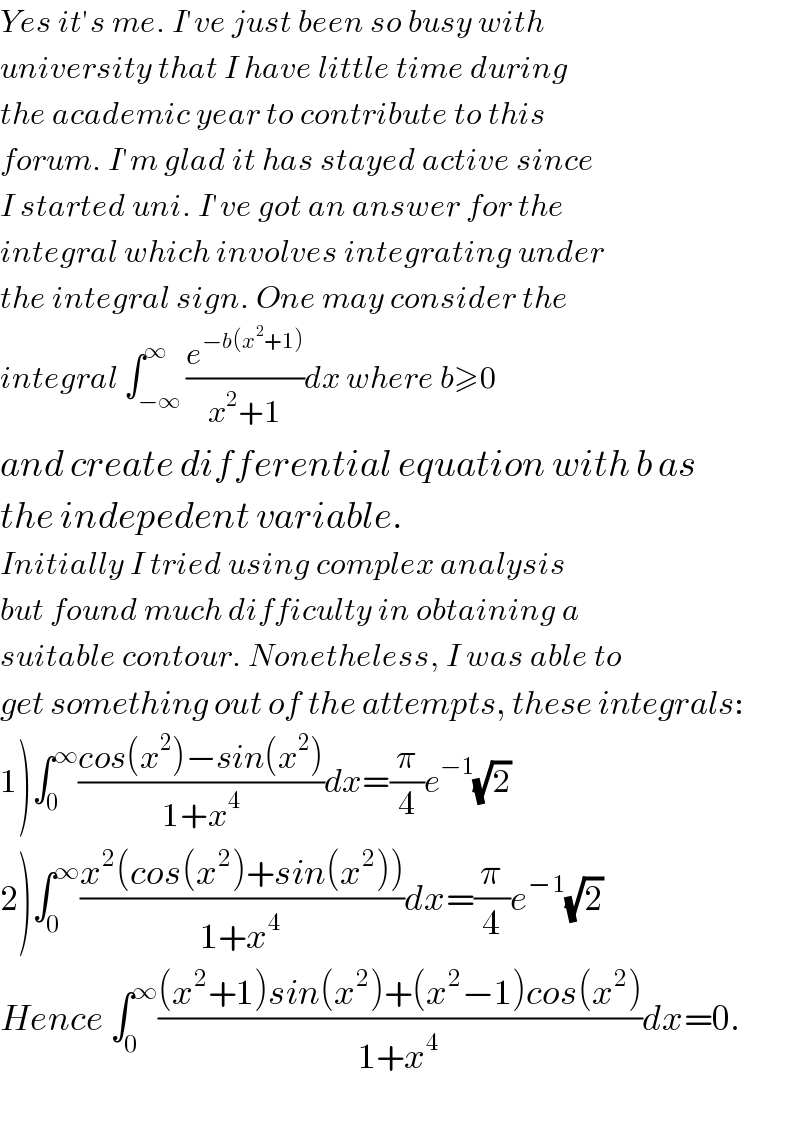
Commented by Rasheed.Sindhi last updated on 23/Apr/18

Commented by Yozzzzy last updated on 24/Apr/18

